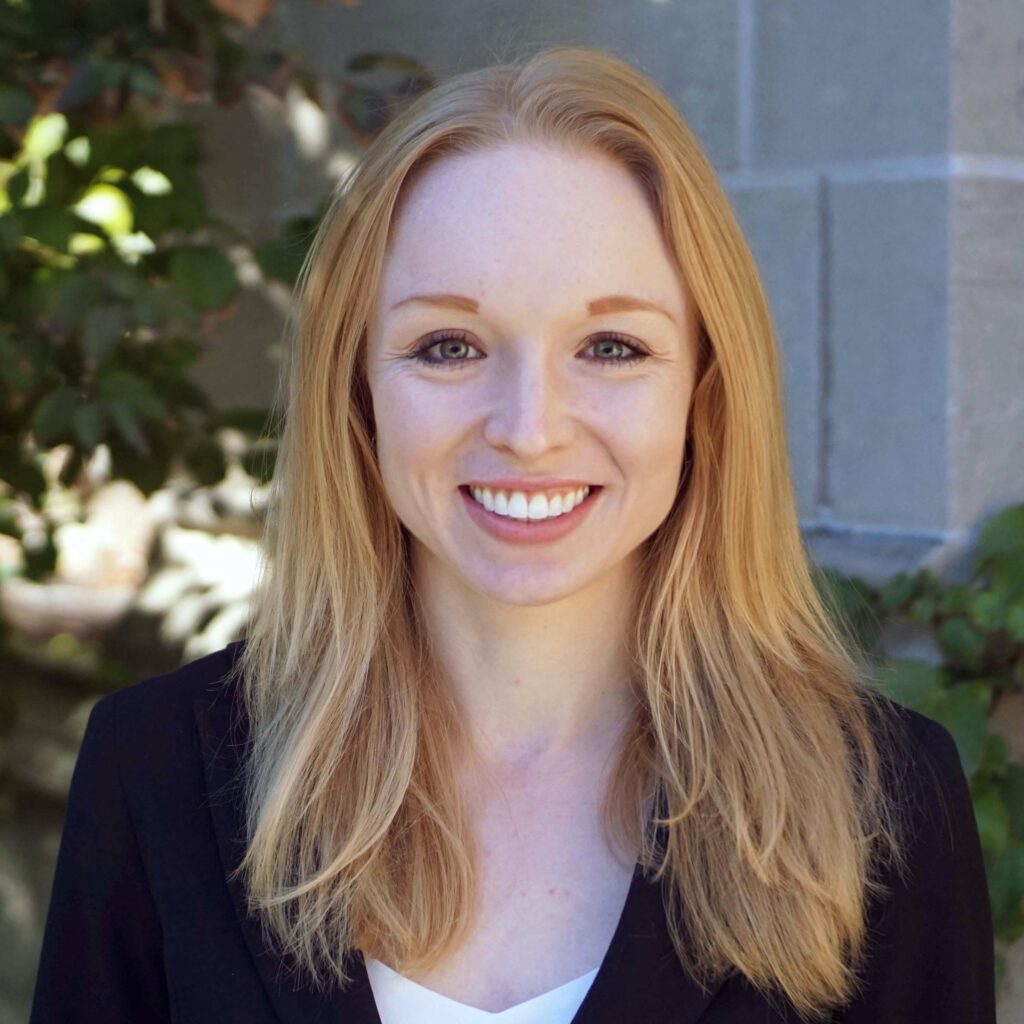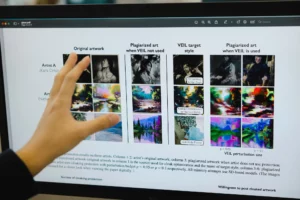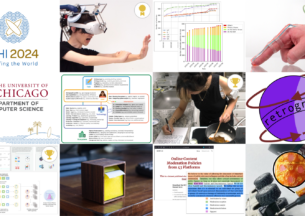Alumni Spotlight: Get To Know Emily Wenger, a 2023 CS Graduate Who Was Just Named To The Forbes 30 Under 30 List

During her time in the Department of Computer Science at UChicago Emily Wenger was a Harper Fellow, Harvey Fellow, and Siebel Scholar studying AI in the SAND Lab. She received the USENIX Internet Defense Prize, the USENIX Distinguished Paper Award, and now a spot on the Forbes 30 Under 30 list. She will be starting as an assistant professor at Duke University– something she has always dreamed of doing. I asked Emily about her experience at UChicago, being named to the Forbes Under 30 list, and the trajectory of her career path.
How does it feel to be named to the Forbes 30 Under 30 list?
I’m honored to receive the award! It is exciting to be part of such an amazing cohort of innovators and thinkers.
Why do you think you were chosen over 11,000 other people?
I think Glaze struck a chord with a lot of people. We are in the middle of this cultural moment where generative AI is becoming more prevalent, even though its implications are not fully understood. Glaze is helping combat some of the worst angles of generative AI technology, and people are hungry for solutions that address these downsides.
How do you hope this accomplishment inspires others?
To me, this award demonstrates that – sometimes but not always – good, hard, important work is recognized for what it is. I hope it inspires others to keep working hard to address real problems in our world. Though sometimes the work is its own reward, recognition might come when you least expect it (and it’s nice when it does come!).
How did you choose UChicago for your PhD program?
UChicago offered everything I was looking for in a PhD: a rigorous program, a great advisor fit, an exciting research environment, and a fun location. Once I was accepted, it was the obvious choice for me!
What was your overall experience like here?
 I had a really good experience at UChicago. Although my PhD was disrupted by the COVID-19 pandemic, I still was able to work on interesting research problems with great collaborators. I particularly enjoyed collaborating with my colleagues in the SAND Lab and taking in the many fun experiences Chicago has to offer. Some of the research projects I worked on, like Glaze and Fawkes, got significant media attention, so I also got to learn more about communicating science to the public. That was a fun and interesting challenge!
I had a really good experience at UChicago. Although my PhD was disrupted by the COVID-19 pandemic, I still was able to work on interesting research problems with great collaborators. I particularly enjoyed collaborating with my colleagues in the SAND Lab and taking in the many fun experiences Chicago has to offer. Some of the research projects I worked on, like Glaze and Fawkes, got significant media attention, so I also got to learn more about communicating science to the public. That was a fun and interesting challenge!
What was your favorite class and why?
Computer Security! Mostly because it was my area of research focus, but also because it taught me a whole toolbox of new skills that I still use.
What person, course, or experience most influenced your time at UChicago? How?
My advisors, Ben Zhao and Heather Zheng. Their mentorship throughout my 5 years at UChicago grew me both as a researcher and a person, and I am so grateful for the countless hours they poured into my development.
What opportunities did you have at UChicago that you particularly enjoyed?
During my PhD, I was able to travel to many conferences, both to present my research and to meet colleagues in my field. I really enjoyed the chances I had to see new places and build my professional network. Some fun spots visited include London, Toronto, and St. Kitts!
What do you think sets UChicago’s Department of Computer Science apart from others?
UChicago’s CS department is so full of life! There are lots of new faculty members working on so many interesting directions, so it is easy to find collaborators and learn about new subfields of CS.
Who is your current employer?
Meta (but soon Duke University)
What is your current job title?
Research Scientist (but soon Assistant Professor)
What do you do day-to-day?
I research machine learning-based attacks on post-quantum cryptosystems. I interned with Meta during my PhD, where I first started working on this problem, and I am grateful for the opportunity to continue my research with them this year.
What has your career path been like? How did you end up where you are?
After college, I worked for the Department of Defense as a research mathematician for several years before coming to UChicago to pursue my PhD. While at UChicago, I did an internship at Meta, doing this ML + cryptography project, which led me to my post-grad work at FAIR, a research group within Meta. However, it has long been a dream of mine to become a professor, and I am excited to start as an Assistant Professor at Duke in summer 2024.
What are some of the things you like about your job?
At Meta, I really enjoy the freedom I have to explore my research ideas. I also get to work with many great colleagues, all of whom have different backgrounds and teach me so much.
How did your professors and advisor prepare you for your current job?
In so many ways — by training me to be a thorough and rigorous researcher, training me to write well, and giving me opportunities to explore different research interests until I found my “fit.”
What are some skills you learned during your PhD program that prepared you for your career?
I think writing is the biggest one! No matter what I do, whether I stay in a direct research field or transition to something more administrative, I will always have to write. I’m glad I’ve learned a few tips and tricks during my PhD.
What advice would you give current students about making the most out of their time in the program or about how to transition into the “real world”?
To make the most out of your PhD: give yourself a schedule. Know when you are going to work (e.g. 9-5pm), and when you are going to rest. Try to give yourself at least one full day off per week to focus on non-work things. Of course, there will be times (deadlines!) when this schedule flies out the window, but having a good balance of work and rest is key to longevity in a PhD program.













